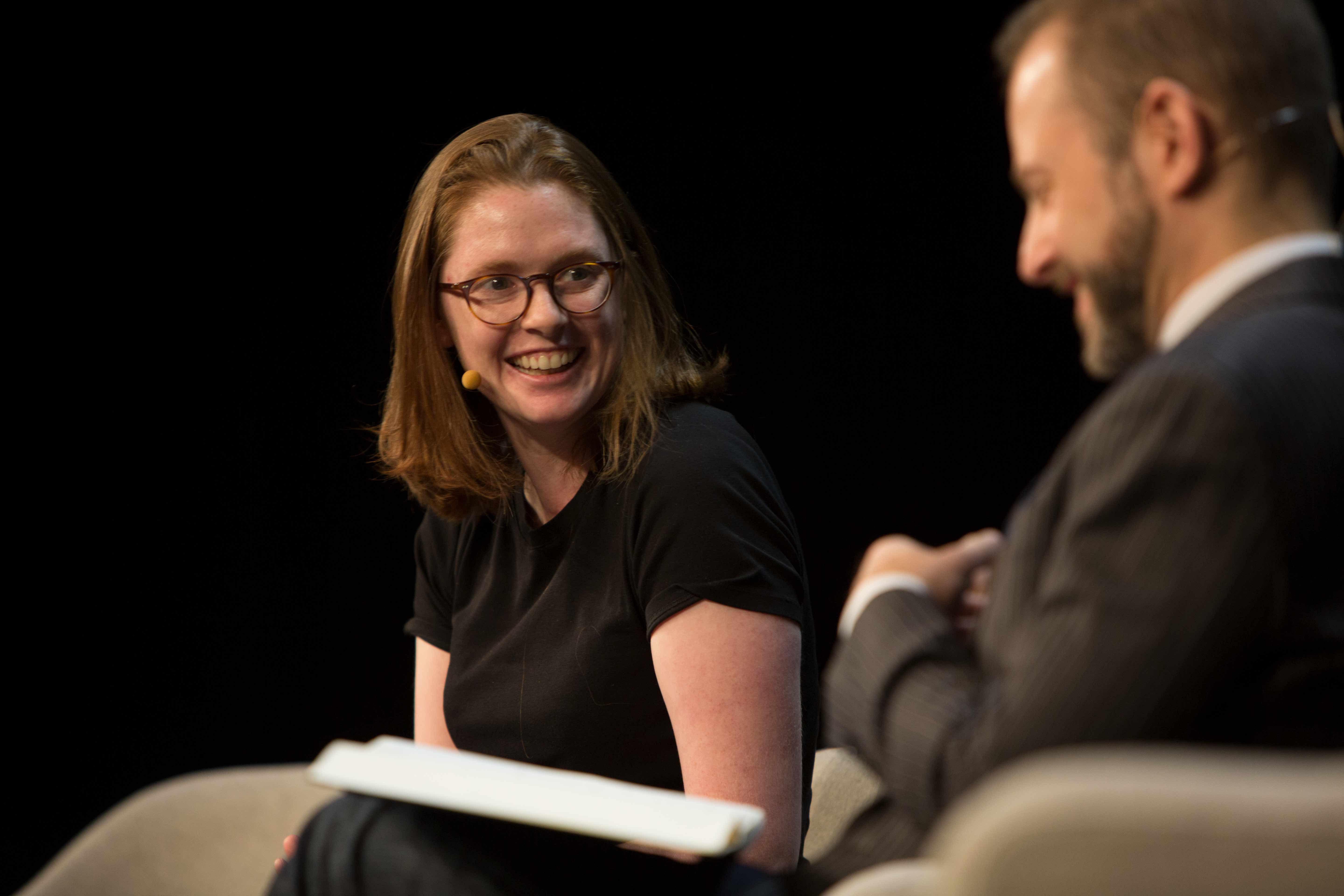Tezos had a $200 million ICO. Then the lawsuits started. Now a cofounder tells her side.

When it burst on the scene with a $232 million initial coin offering last year, Tezos turned heads for more than its eye-popping valuation. The company promised to bring order to the chaos that surrounded networks like Bitcoin, Ethereum, and others by establishing a way to vote on upgrades to a blockchain network. If it worked, it could resolve one of the thorniest issues in the world of cryptocurrencies.
It hasn’t quite gone to plan. Even as cofounder Kathleen Breitman took the stage today at MIT Technology Review’s Business of Blockchain conference, Tezos was beset by allegations of fraud. But Breitman, whose lawyer was in the audience, appeared undaunted. Even as she marveled that Bitcoin was “extraordinarily resilient” and called it the Coca-Cola of the cryptocurrency world, she asserted that she still would like Tezos to become the Pepsi.
Such determination will be needed. Cryptocurrencies and the larger blockchain community now face a defining moment in their evolution. Global financial regulators have taken notice, and rumors are swirling that cryptocurrencies could soon be subject to the same laws as any stock, bond, or other security.
For her part, Breitman was adamant. Batting away tough questions about what such regulation might mean for her company, she insisted that the future for Tezos is bright—even while she offered little in terms of what it plans to do next.
Correction: The initial version of this article mistakenly referred to Breitman as Tezos's CEO. She is a cofounder.
Keep Reading
Most Popular
Large language models can do jaw-dropping things. But nobody knows exactly why.
And that's a problem. Figuring it out is one of the biggest scientific puzzles of our time and a crucial step towards controlling more powerful future models.
How scientists traced a mysterious covid case back to six toilets
When wastewater surveillance turns into a hunt for a single infected individual, the ethics get tricky.
The problem with plug-in hybrids? Their drivers.
Plug-in hybrids are often sold as a transition to EVs, but new data from Europe shows we’re still underestimating the emissions they produce.
Stay connected
Get the latest updates from
MIT Technology Review
Discover special offers, top stories, upcoming events, and more.